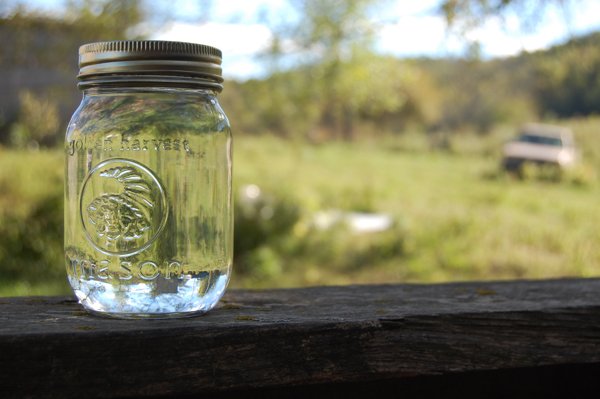 Dalton Distillers aims not only to produce a high-quality (and 111 proof) product made of locavore ingredients, but also to educate consumers about some misunderstood aspects of highlander heritage.
Dalton Distillers aims not only to produce a high-quality (and 111 proof) product made of locavore ingredients, but also to educate consumers about some misunderstood aspects of highlander heritage.
“People tend to think of moonshiners as uneducated ‘rednecks,’ so to speak,'” says Chuck Butler, “but a distillery involves some complex principles of science, chemistry, and math. There was a lot of ingenuity and resourcefulness, backed up by the technology of the time, that went into the product.”
Butler, with partner Stella Landers, drew up plans for the artisanal, small-craft distillery and a historical museum and, earlier this year, began selling T-shirts, shot glasses, pocket-knives, and other souvenirs online. They are using assistance from ACE to renovate a site in Dalton, with the goal of opening up part of the storefront business in November, in time for Christmas gift-giving.
“There are a lot of operating expenses, especially when you’re dealing with alcohol, to meet requirements of the fire code and to acquire all of the right permits and paperwork — we are doing everything legally!” says Butler, who is using a family recipe that is more than a century old. “It was my grandfather’s — he was born in 1910 in Tennessee and was part Cherokee.”
Like all competitive bootleggers, Butler keeps the recipe secret, of course, but it requires 75 percent corn mash and 25 percent cracked-wheat mash, which he intends to buy from Georgia farmers and package in old-timey Mason jars. The museum will showcase condensers and other equipment, along with photographic archives and other relics he hopes will appeal to visitors from all over the world.
The local chamber of commerce referred the business partners to ACE. “I didn’t know about this organization until then, and I’m so grateful for ACE’s help,” he says. “As a small business owner, I’m always short on time and pulled in different directions, but ACE made it so easy and convenient for me to move ahead with this project.”
